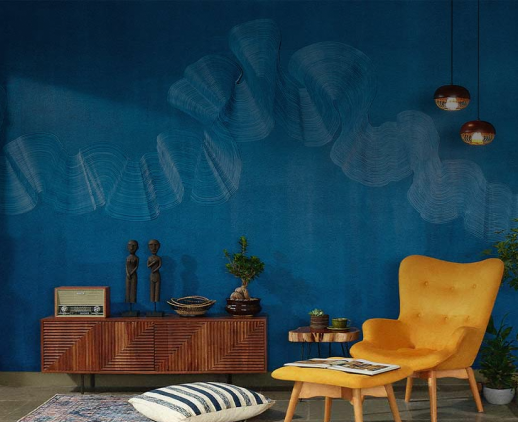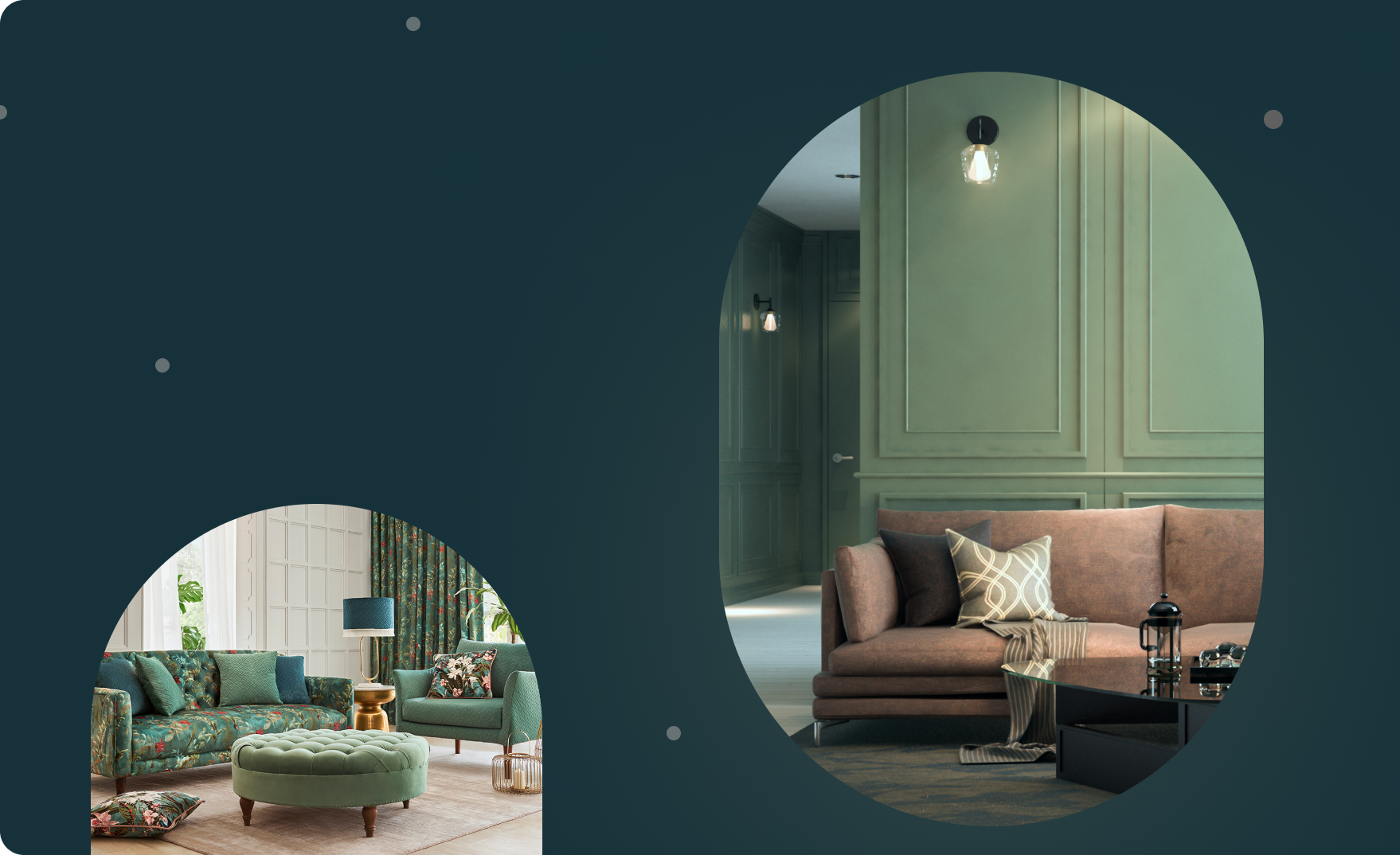
Get an approximate budget for your kitchen design by sharing your space details.


Get Started with your interior design journey with us!
Speak to our design professionals
Share your info, we’ll book your slot.
Please select your design requirement
What’s the condition of your home/space?
Will you be living in your space during the renovation?
 Previous Question
Previous Question
What’s the status of your home possession?
 Previous Question
Previous Question
Let us know the number of rooms for interiors
 Previous Question
Previous Question
Is your interior design budget over 4 lakhs?
 Previous Question
Previous Question
Book next available appointment slots with our experts!
Please Select Date and Day
 Previous Question
Previous Question

Something went wrong!
We were unable to receive your details. Please try submitting them again.

Appointment Scheduled!
Thank you for giving an opportunity to Asian Paints Beautiful Homes Service! Our Customer Experience Specialist will get in touch with you soon.
Appointment Date & time
Thank You!
Our team will contact you for further details.
9 vanity countertop ideas: Your guide to choosing the best material

Can’t quite put your finger on why your bathroom interiors seem so uninspiring? Get ready for the upgrade you didn’t know you needed as we dive into the pros and cons of bathroom countertop materials and why you should spruce up your space with one of these!
From popular natural stone granite countertop options that come in a myriad of colours, to premium man-made white quartz countertops that bring spa-like luxury to your bathroom, there’s a wide range and variety of available materials you can choose from when it comes to your bathroom countertops. Of course, whether you’re planning the bathroom interior design for a new home, or getting ready for a much needed remodel of an old space, knowing more about these popular countertop materials is sure to provide clarity.
With this information at your fingertips, we hope it’s a little easier for you to settle on the perfect vanity countertop to give your bathroom the elegant upgrade you’ve been wishing for.
IN THIS ARTICLE
• Bathroom Countertop Material 1: Quartz Countertop
• Bathroom Countertop Material 2: Granite Countertop
• Bathroom Countertop Material 3: Wood Countertop
• Bathroom Countertop Material 4: Marble Countertop
• Bathroom Countertop Material 5: Concrete Countertop
• Bathroom Countertop Material 6: Ceramic Countertop
• Bathroom Countertop Material 7: Solid Surface / Corian
Bathroom Countertop Material 1: Quartz Countertop
Although relatively less pocket-friendly than some other materials, at around ₹300 onwards per sq.ft, a quartz countertop is not only an attractive alternative to natural stone, but also highly durable. This engineered stone product is made from a blend of ground up quartz and other stone minerals combined with resins and pigments, which is then shaped into a quartz slab that can be used as a countertop.
Pros:
Due to its hardness, engineered quartz is a very low maintenance, chip resistant, non-porous material that does not require sealing. Many styles and quartz countertop colours are available, as well as a variety of stone finishes that can be completely indistinguishable from natural stone. Since these countertops are shaped, they can be formed with integrated wash basins and other features.
Cons:
Engineered quartz is not only more expensive than most natural stone, it is also less heat resistant. Keep in mind that in some cases, particularly with white quartz countertops or other pale shades, seams may be visible.
Bathroom Countertop Material 2: Granite Countertop
Comparatively low maintenance in your options of natural stone, granite is also highly chip- resistant and long-lasting. Other than its durability, one of the main reasons that this a popular choice is that granite countertop colours come in a wide range, with a speckled finish that adds a hint of subtle charm. While grey and white granite are often favoured for bathroom interiors, deep green or black granite countertops can be dressed up to look either modern or classic, depending on the fixtures and bathroom furnishings you choose.
Pros:
Granite is relatively inexpensive at around ₹80 onwards per sq.ft. Specific types of white granite (such as a colonial countertop quarried in South India), can look luxurious but be an affordable alternative to the more expensive marble or quartz. Every slab of granite is unique, so your countertops will definitely be one of a kind.
Cons:
One downside to a granite countertop is that since this type of natural stone is relatively porous, it is prone to staining and will need to be properly sealed and maintained at frequent intervals.


Bathroom Countertop Material 3: Wood Countertop
Featured in interior design magazines and home makeover shows, the wood countertop is admired for its warm, inviting feel and farmhouse-rustic aesthetic. Furthermore, the visual warmth is backed up by physical comfort as wood does not become chilled and cold to the touch. Large butcher block countertops evoke down-to-earth luxury while being easy to recreate within your own home.
Pros:
The advantages of a wooden vanity countertop in terms of look and feel are not the only reason for the popularity of the material. Growing eco-consciousness and the desire for natural biodegradable materials have made wood a top choice in terms of local sourcing, low manufacturing costs and sustainability.
Cons:
While regular maintenance and resealing can prolong the durability of your wood countertop, it remains relatively susceptible to heat and water damage. You will need to wipe down counters thoroughly with each use and ensure that heating devices, candles, hair straighteners, etc. are used with care. Also be aware that many bathroom cleaning products are not meant for use on wood.
Bathroom Countertop Material 4: Marble Countertop
As a building material, marble exudes a well-established and timeless luxury, and this holds true even when it’s used as your bathroom countertop. In a variety of colours from chic pink to high-end black and elegant white, a marble countertop can be paired with any interior look to great effect.
Pros:
As with granite, no two pieces of marble are exactly alike! Plus, unlike with the fairly inconspicuous speckles in granite, the veining in marble can be very apparent and beautiful, adding to the uniqueness of your bathroom vanity countertop.
Cons:
While granite and marble can look fairly similar and occasionally be mistaken for each other, a marble countertop will be quite a bit more expensive (from ₹200 upwards per sq.ft.). Marble is also highly porous and prone to staining, so upkeep and frequent maintenance, including resealing, is an absolute must.

Bathroom Countertop Material 5: Concrete Countertop
Properly cured and sealed, a concrete countertop is remarkably durable and easy to maintain. Handcrafted in a wide range of styles to suit any décor trend, this versatile material has an added advantage; the low cost of the materials used makes concrete a wallet-friendly choice for your bathroom countertop.

Pros:
Other than easy maintenance and durability, the greatest advantage to concrete countertops is their customizability – from an in-built counter top basin to embedded patterns of polished glass, tile or stone, these countertops can be customised and stained to suit your style in an almost infinite variety of colours, finishes, textures and patterns.
Cons:
The artisan's level of expertise while fabricating your concrete countertop might affect the final outcome; in some cases, exposure to moisture could cause expansion. If cracks do occur, invisible repair may not be an option and replacement may be your only choice.
Bathroom Countertop Material 6: Ceramic Countertop
While many of us only think of tile as an option for bathroom walls and flooring, the many sizes and styles available can make a tiled porcelain or ceramic countertop a wonderful choice – particularly if you’re looking for something less expensive, but still very unique and pretty for your bathroom interior design.
Pros:
At a base level, ceramic tile is a much cheaper option than many others, being available at as low as ₹30 per sq.ft. and up. Even though it’s inexpensive, tile is considered a premium material for a bathroom vanity countertop and the many colour, design and pattern choices available give this a high degree of versatility when it comes to your final vanity design.
Cons:
Tile is relatively brittle and a ceramic countertop may crack under impact. Another factor to consider is maintenance, as grout lines are prone to staining, discoloration and gathering mildew – periodic cleaning and resealing will need to be on your to do list.
Bathroom Countertop Material 7: Solid Surface / Corian
This man-made material is created from a blend of acrylic and polyester particles bonded together with resins. Similar to the quartz countertop, solid surface countertops are most often formulated with a faux stone finish. There are dozens of different styles and colours available and during the fabrication process, your vanity countertop can be shaped into a variety of forms. Although multiple manufacturers exist, it is often referred to by the brand name Corion, as this is the most easily available choice in India.
Pros:
Easy to care for, resistant to stains and relatively easy to repair, the colour and pattern of solid surface countertops is also very consistent, making it a simple matter to match multiple pieces. Since the solid-surface material can be shaped to your specifications, an in-built countertop basin with a seamless finish and other such features are all possible.
Cons:
While coloured solid surface countertops can look extremely trendy and modern, faux stone finishes will look less elegant than natural stone and can appear somewhat artificial. One big downside to this type of vanity countertop is that it is not very heat resistant and will scorch and discolour if a hot curling iron, straightener or even hair dryer is accidentally placed on the surface.
Bathroom Countertop Material 8: Glass Countertop
A glass bathroom vanity countertop not only looks classy and elegant, but can also give the room an illusion of spaciousness, as it helps amplify the light within the space. Of course, since glass isn’t particularly durable, most glass countertops are made from recycled crushed glass which is embedded in either clear acrylic or concrete. Custom fabricated, often in a striking design or with an integrated countertop basin, these uniquely beautiful vanities are always one-of-a-kind, ranging from modern to traditional in appearance, depending on the glass used.
Pros:
Crushed glass makes for an extremely durable, tough and strong bathroom countertop, particularly when crafted with acrylic. It is also very easy to keep clean and maintain. Additionally, a wide variety of looks and styles are available, depending on your price point.
Cons:
Occasionally when formulated with concrete, they can be brittle, and will need to be periodically reseasled to avoid staining. Also when crafted from concrete, this type of vanity countertop may be prone to fine cracks appearing, and if that happens, your piece will need to be replaced.
Bathroom Countertop Material 9: Laminate Countertop
This inexpensive option is gaining popularity these days due to the huge number of styles and finishes you can find – with everything from faux white granite countertops to vibrant colours and exotic patterns being easily available. Plus, it’s a great choice for you if you’re looking for a bathroom vanity countertop that’s super durable and extremely easy to clean and maintain.
Pros:
Laminates are a very inexpensive bathroom countertop material that can be the perfect compliment to your style sense; the wide range of finishes available today are a far cry from the unappealing options of yesteryear. If you can’t find what you’re looking for, pre-made, custom-made designer laminates are also often available.
Cons:
A vanity countertop usually requires a certain heft since it needs to support the basin, as well as toiletries and other bathroom sundries; laminate countertops are lightweight and this will need to be taken into account when your bathroom interiors are being built.

If this has helped you gain a better idea of which bathroom vanity countertop material is the best choice for your home interiors, then the next step is to get started on your bathroom style upgrade! That’s where we step in…
Get started with Beautiful Homes
For expert design consultation, send us your details and we’ll schedule a call
Yes, I would like to receive important updates and notifications on WhatsApp.
By proceeding, you are authorizing Beautiful Homes and its suggested contractors to get in touch with you through calls, sms, or e-mail.


Thank You!
Our team will contact you for further details.


Something went wrong
We were unable to receive your details. Please try submitting them again.











































